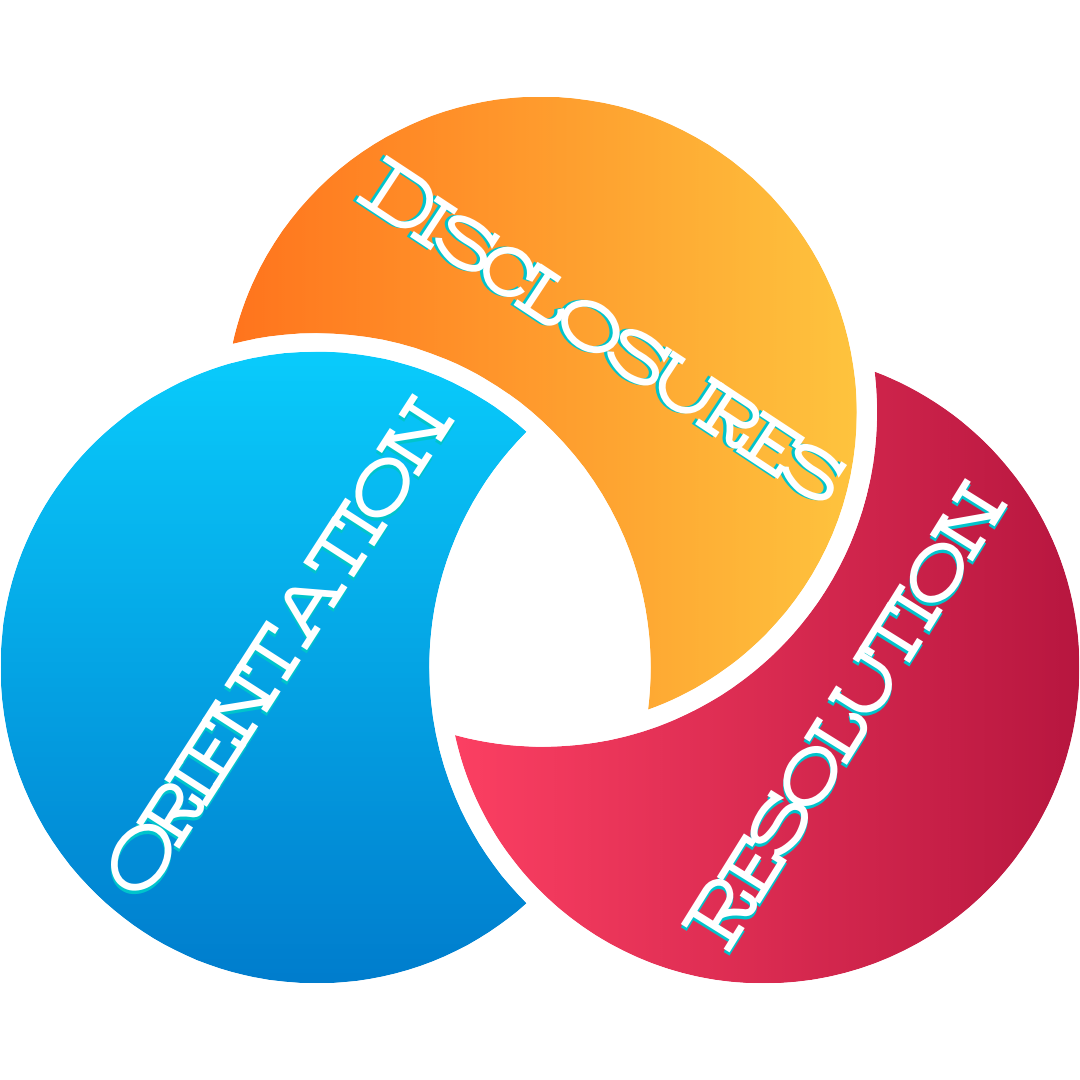7 Facts About Divorce Mediation Attorneys That Will Help You Choose Wisely
A divorce mediation attorney is also called a mediator. However, the word mediator is broader than a divorce mediation attorney. For example, a mediator may not be an attorney.
We use the words divorce mediation attorney in this guide to refer to a mediator who is an attorney. We do not recommend you use a non-attorney as a mediator. Such persons may not have the education, qualifications, and experience you need for your divorce mediation.
We provide you with 7 facts you should know about a divorce mediation attorney before you hire.
A little later in this article, we provide you with a form to contact us if you and your spouse want to retain a divorce mediation attorney at our firm. We hope you enjoy this article and please contact us if you have questions.
- B. Robert Farzad
What is the difference between a divorce mediation attorney and your attorney?
The first fact you must know is an attorney who acts as a divorce mediator is different from an attorney who represents a spouse.
- A divorce mediation attorney is a neutral attorney who conducts the mediation. This divorce mediation attorney does not represent either spouse and does not, therefore, advocate for either spouse.
- A divorce mediation attorney facilitates communication between spouses and helps achieve a mutually acceptable settlement for some or all the issues in the divorce.
On the other hand, an attorney representing a spouse is not neutral. That attorney only focuses on their client's best interest and serves as their client's zealous advocate.
What qualifications should you want in a divorce mediation attorney?
The second thing you should know about a divorce attorney who handles mediations is about their qualifications.
The qualifications you should want from a divorce mediation attorney depend partially on how complex your marital estate is. There is a big difference between a marital estate worth one hundred thousand dollars versus one worth 20 million.
However, regardless of the estate, we believe there are at least three qualifications you should want in any divorce mediation attorney.
Experience in family law cases
First, a divorce mediation attorney should have significant experience in family law.
Hiring a divorce mediation attorney who mediates different areas of law, including family law, may not be the best choice. Does that mediation attorney have sufficient experience in just family law? That is the question you should ask.
Family law litigation experience
Second, the divorce mediation attorney should ideally have family law litigation experience. You may wonder why this matters.
Family law attorneys who serve as mediators who have litigation experience have a more well-rounded perspective on the settlement process.
They have been in the trenches of litigation and understand how the adversarial process works. They can give you and your spouse a greater insight than someone who only has mediation experience.
That litigation experience may benefit you and your spouse because that divorce mediation attorney can tell you what facts courts may consider important.
Divorce mediation attorneys cannot predict the future. They can however draw on their experience to help you, and your spouse better understand how to avoid the litigation process and achieve a reasonable settlement.
Time to dedicate to your divorce mediation
Third, the divorce mediation attorney must have the time to dedicate to your mediation.
Suppose you go to a "mill" that handles a large volume of mediations. In that case, chances are good you will get average to below average services.
Mediation is no different from any other area of family law. It requires time and patience. When someone has the time and patience to dedicate to you and your spouse and help you achieve a reasonable settlement, the process will go faster. It will also be less stressful and less expensive.
What questions should my spouse and I ask a divorce mediation attorney before hiring one?
The third fact you should know are answers to some important questions.
We suggest you and your spouse ask the following questions of the divorce mediation attorney:
- How many years have you been a licensed attorney?
- How many years have you practiced family law?
- Do you have any family law litigation experience?
- Do you have time to dedicate to our mediation? And if the answer is yes, you should ask the divorce mediation attorney to explain how and why they have the time. For example, we work hard to keep our lawyers under a full caseload at our family law firm. That way, the clients our lawyers represent will receive quality time and attention. Many family law firms do not have such a policy, nor are they selective about the clients they represent or the mediations they may undertake.
It would help if you also asked questions to understand the following better.
- The divorce mediation attorney's fee structure, process and handling of the mediation,
- Protocol with communication throughout the process, and
- Generally, how long do mediations like yours take from start to finish assuming you and your spouse are cooperative and diligent throughout the process.
Although it should go without saying, also speak with the divorce mediation attorney about their comfort level if you want your independent attorney to attend the mediation.
A quality divorce mediation attorney will not hesitate for either party to have their independent attorney present at the mediation.
We are aware some mediators have a policy against that. We have never understood the policy. We think it is a problem when a divorce mediator does not allow a party to bring their attorney to the mediation.
What are the divorce mediation attorney's duties and responsibilities?
The fourth fact you should know deals with the mediation attorney's duties and responsibilities.
The divorce mediation attorney does not represent you and your spouse.
However, the mediation attorney still has specific responsibilities.
They include the following:
- Remaining neutral at all times,
- Facilitating communication between you and your spouse,
- Presenting you with a mediation retainer contract, so you clearly understand the terms of the retention and the costs,
- Maintaining the confidentiality of communications during mediation,
- Providing you and your spouse with mandatory notices such as those set forth by Evidence Code section 1129, and
- Compliance with California law that governs what divorce mediators can and cannot do.
What can (and can't) a divorce mediation attorney do for you and your spouse?
Our 5th and 6th facts you should know are (a) what can and (b) what can't a divorce mediation attorney do for you and your spouse.
What can a mediation attorney do?
A divorce mediation attorney facilitates communication between you and your spouse. That way, you can communicate in good faith regarding a settlement.
Divorce law can be both simple and complex. Some aspects of divorce law are common sense. Other aspects are not and require a deep knowledge of the law. An experienced family law attorney who handles divorce mediations can help you better understand the law.
Divorce mediation is not just a process where spouses settle just to "get it over with..." The spouses should understand what typical settlements are in their situation and understand what a reasonable settlement, which often includes reasonable compromises, may be in their specific situation.
What can't a mediation attorney do?
A divorce mediation attorney cannot advocate on your behalf or on behalf of your spouse.
What if one of you does not like what the mediator states? For example, even though California law is very clear about guideline child support and how, with rare exceptions, a computer program dictates what the child support number will be, some spouses do not believe the law is fair.
If a divorce mediation attorney states what guideline child support is, a spouse may believe the mediation attorney is somehow advocating for their spouse. That is an unreasonable perspective. Stating what the law requires is not advocating for anybody. It is simply stating what the law requires.
That is one of several examples. We give that example because it is important to participate in divorce mediation with objectivity. It is not helpful to have a preconceived notion of how things should go or what may be "fair" from your perspective when your perspective is inconsistent with the law.
If you want or need someone to advocate your position on any issue, hire your independent attorney to help you during the mediation process.
Do you and your spouse need to meet in person with a divorce mediation attorney?
This is the 7th fact you should know. And the answer should be a simple one - No, spouses should not need to meet in person with the divorce mediation attorney. Maybe a mediation attorney has a preference for in-person meetings because they are not comfortable with virtual meeting technology, but is that attorney's preference really more important than yours? It should not be.
To use our firm as an example, we are a highly technologically competent firm. We have and continue to meet with people via virtual applications like Zoom and others.
In this modern age of technology and virtual meetings, spouses rarely need to inconvenience themselves by getting into a car and driving to an office to have a meeting.
You, your spouse and the divorce mediation attorney can participate in the mediation virtually from start to finish.
Want to read more informative guides on divorce mediation?
Click on an image below to visit that page.





